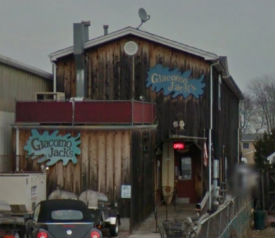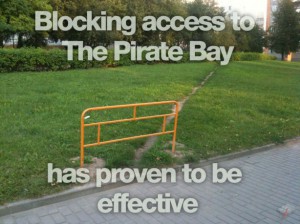 As the discussions over the future of anti-piracy legislation in Australia continue, a draft submission has revealed the wish-list of local movie groups and their Hollywood paymasters.
As the discussions over the future of anti-piracy legislation in Australia continue, a draft submission has revealed the wish-list of local movie groups and their Hollywood paymasters.
The draft, a response to a request by Attorney-General George Brandis and Communications Minister Malcolm Turnbull for submissions on current anti-piracy proposals, shows a desire to apply extreme pressure to local ISPs.
The authors of the draft (obtained by Crikey, subscription, ) are headed up by the Australia Screen Association, the anti-piracy group previously known as AFACT. While local company Village Roadshow is placed front and center, members including the Motion Picture Association, Disney, Paramount, Sony, Twentieth Century Fox, Universal and Warner make for a more familiar read.
Australian citizens – the world’s worst pirates
The companies begin with scathing criticism of the Australian public, branding them the world’s worst pirates, despite the ‘fact’ that content providers “have ensured the ready availability of online digital platforms and education of consumers on where they can acquire legitimate digital content.” It’s a bold claim that will anger many Australians, who even today feel like second-class consumers who have to wait longer and pay more for their content.
So what can be done about the piracy problem?
The draft makes it clear – litigation against individuals isn’t going to work and neither is legal action against “predominantly overseas” sites. The answer, Hollywood says, can be found in tighter control of what happens on the Internet.
Increased ISP liability
In a nutshell, the studios are still stinging over their loss to ISP iiNet in 2012. So now, with the help of the government, they hope to introduce amendments to copyright law in order to remove service providers’ safe harbor if they even suspect infringement is taking place on their networks but fail to take action.
“A new provision would deem authorization [of infringement] to occur where an ISP fails to take reasonable steps – which are also defined inclusively to include compliance with a Code or Regulations – in response to infringements of copyright it knows or reasonably suspects are taking place on its network,” the draft reads.
“A provision in this form would provide great clarity around the steps that an ISP would be required to take to avoid a finding of authorization and provide the very kind of incentive for the ISP to cooperate in the development of a Code.”
With “incentives” in place for them to take “reasonable steps”, ISPs would be expected to agree to various measures (outlined by a ‘Code’ or legislation) to “discourage or reduce” online copyright infringement in order to maintain their safe harbor. It will come as no surprise that subscriber warnings are on the table.
‘Voluntary’ Graduated Response
“These schemes, known as ‘graduated response schemes’, are based on a clear allocation of liability to ISPs that do not (by complying with the scheme) take steps to address copyright infringement by their users,” the studios explain.
“While this allocation of liability does not receive significant attention in most discussions of graduated response schemes, common sense dictates that the schemes would be unlikely to exist (much less be complied with by ISPs) in the absence of this basic incentive structure.”
While pointing out that such schemes are in place in eight countries worldwide, the movie and TV companies say that a number of them contain weaknesses, a trap that Australia must avoid.
“There are flaws in a number of these models, predominantly around the allocation of costs and lack of effective mitigation measures which, if mirrored in Australia, would make such a scheme ineffective and unlikely to be used,” the paper reads.
It appears that the studios believe that the US model, the Copyright Alerts System (CAS), is what Australia should aim for since it has “effective mitigation measures” and they don’t have to foot the entire bill.
“Copyright owners would pay their own costs of identifying the infringements and notifying these to the ISP, while ISPs would bear the costs of matching the IP addresses in the infringement notices to subscribers, issuing the notices and taking any necessary technical mitigation measures,” they explain.
In common with the CAS in the United States, providers would be allowed discretion on mitigation measures for persistent infringers. However, the studios also imply that ISPs’ ‘power to prevent’ piracy should extend to the use of customer contracts.
“[Power] to prevent piracy would include both direct and indirect power and definitions around the nature of the relationship which would recognize the significance of contractual relationships and the power that they provide to prevent or avoid online piracy,” they write.
Voluntary agreements, required by law, one way or another
The key is to make ISPs liable first, the studios argue, then negotiations on a “voluntary” scheme should fall into place.
“Once the authorization liability scheme is amended to make clear that ISPs will be liable for infringements of copyright by their subscribers which they know about but do not take reasonable steps to prevent or avoid, an industry code prescribing the content of those ‘reasonable steps’ is likely to be agreed between rightsholders and ISPs without excessively protracted negotiations.”
However, any failure by the ISPs to come to the table voluntarily should be met by legislative change.
“In the absence of any current intention of and incentive for ISPs in Australia to support such a scheme (and the strong opposition from some ISPs) legislative recognition of the reasonable steps involved in such a scheme is necessary,” they write.
Site blocking
Due to “weakness” in current Australian law in respect of ISP liability, site blocking has proved problematic. What the studios want is a “no-fault” injunction (similar to the model in Ireland) which requires ISPs to block sites like The Pirate Bay without having to target the ISPs themselves.
“Not being the target of a finding against it, an ISP is unlikely to oppose the injunction – as long as the procedural requirements for the injunction are met. Once made, a blocking injunction would immediately prevent Australian internet users from being tempted to or accessing the blocked sites,” the studios explain.
Despite The Pirate Bay doubling its traffic in the face of extensive blocking across Europe, the movie companies believe that not blocking in Australia is part of the problem.
“The absence of a no-fault procedure may explain the very high rates of film and TV piracy in Australia when compared with European countries
that have such a procedure,” they write.
Unsurprisingly, the studios want to keep the bar low when it comes to such injunctions.
“The extended injunctive relief provision should not require the Court to be satisfied that the dominant purpose of the website is to infringe copyright,” they urge.
“Raising the level of proof in this way would severely compromise the effectiveness of the new provision in that it would become significantly more difficult for rightsholders to obtain an injunction under the scheme: allegedly non-infringing content would be pointed to in each case, not for reasons of freedom of access to information on the internet, but purely as a basis to defeat the order.”
The studios also want the ISPs to pick up the bill on site-blocking.
“[Courts in Europe] have ordered the costs of site blocking injunctions be borne by the ISP. The Australian Film/TV Bodies submit that the same position should be adopted in Australia, especially as it is not likely that the evidence would be any different on a similar application here,” they add.
Conclusion
If the studios get everything they’ve asked for in Australia, the ensuing framework could become the benchmark for models of the future. There’s a still a long way to go, however, and some ISPs – iiNet in particular – won’t be an easy nut to crack.
Source: TorrentFreak, for the latest info on copyright, file-sharing and anonymous VPN services.

 Many bars, pubs and restaurants like to entertain their guests with live music, with bands often playing covers of recent hits or golden oldies.
Many bars, pubs and restaurants like to entertain their guests with live music, with bands often playing covers of recent hits or golden oldies.




